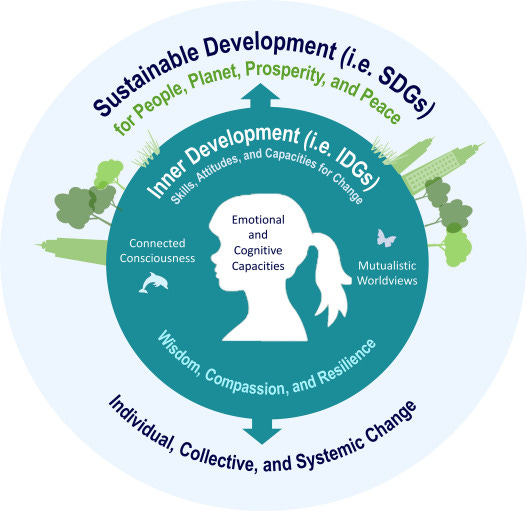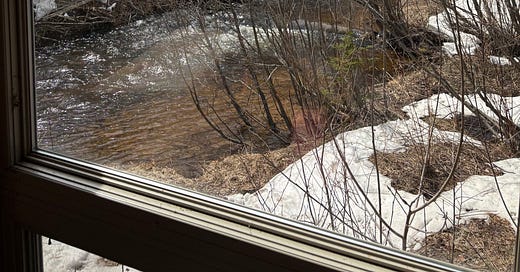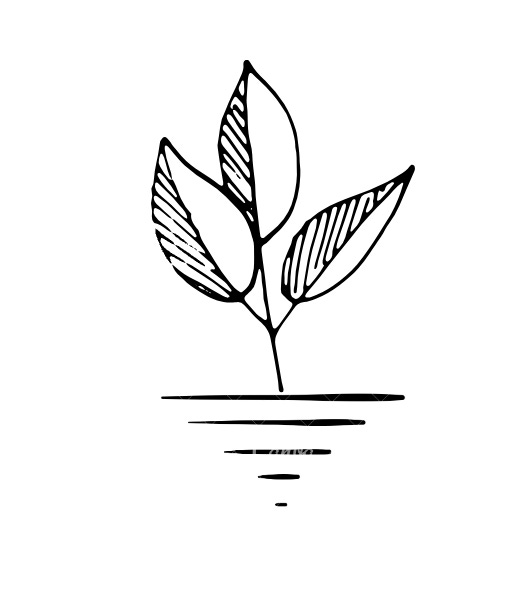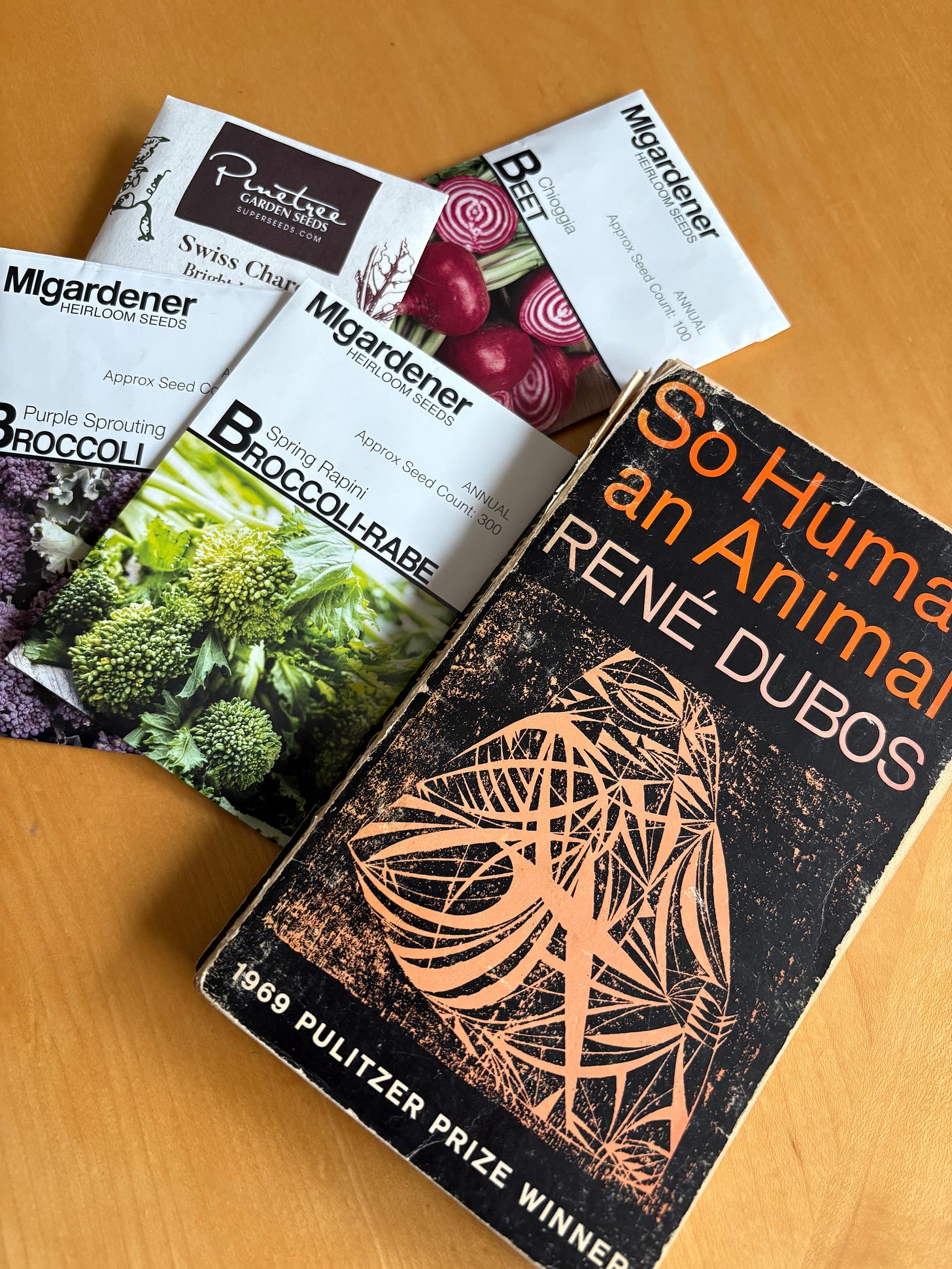How We Heal Ourselves & the Earth — Together
What if caring for our health is inseparable from caring for the earth?
Welcome to the Michelle Seguin MD newsletter! I’m Dr. Michelle, and I’m grateful you’re here as part of our growing community of 900+ readers across 47 states and 32 countries. This week, I’m reflecting on what it means to care for our health alongside the health of the earth — and how our smallest daily choices can become acts of tending and connection.
Hello friends,
Back home, walking the land this weekend, spring is making itself known. The first robin of the season. The sharp knock of a pileated woodpecker in the poplar stand. The wild, familiar honks of geese tracing their way north.
The land is stirring.
What if caring for our own health is inseparable from caring for the earth beneath our feet?
It’s a question I’ve been sitting with as we look ahead to Earth Day — and as I’ve been reflecting on the emerging field of planetary health, a way of thinking that reminds us our wellbeing is rooted in the wellbeing of the natural world.
This week, we’ll explore what that means, and how we might practice it in the season ahead.
With gratitude,
Dr. Michelle
Understanding Planetary Health: A New Framework for Wellbeing
Planetary health represents a shift in how we think about human wellbeing. It recognizes that our health is inseparable from the health of the earth — two parts of the same whole.
The Lancet Commission on Planetary Health defines it as "the health of human civilization and the state of the natural systems on which it depends."
This framework helps us see that many of today’s pressing health challenges — from chronic disease to nutrition insecurity to emerging infectious diseases — are deeply connected to the state of our environment.
During our recent road trip home, I came across a book that brought this concept to life in a new way. At Taylor Books (an indie bookstore in Charleston, WV), I picked up Ecologies of a Storied Planet in the Anthropocene by Serpil Oppermann. The author explores how the stories we tell about the environment shape how we live within it — and how we care for it. This perspective resonates deeply with me, both in medicine and in the garden. The way we frame our relationship with the land influences how we show up as caretakers. Story gives shape to what we love — and what we love, we tend.
While new to modern medicine, planetary health reflects an understanding long held in Indigenous knowledge systems — that our health and the planet’s health are deeply interconnected.
How Environmental Change Shapes Our Health
Environmental changes are already impacting human health through several key pathways:
Climate Change: Rising temperatures are increasing heat-related illnesses, expanding the range of disease-carrying insects, and threatening food and water security in many parts of the world.
Biodiversity Loss: The ecosystems around us shape the ecosystems within us. As environmental biodiversity declines — in soil, plants, and water — we lose vital microbial exposures that support gut health, immune function, and resilience.
Air Pollution: The same emissions driving climate change are contributing to higher rates of asthma, cardiovascular disease, and premature death.
Soil Health and Nutrition: Nutrient-depleted soils yield less nutrient-dense crops contributing to what researchers call "hidden hunger" — a lack of essential vitamins and minerals, even in calorie-abundant diets.
The good news? When we care for our own health with intention, in the meals we prepare, how we move, and the rhythms we keep, those small choices ripple outward. What nourishes us so often nourishes the earth as well. Eating more diverse, seasonal plants, reducing food waste, and supporting local farms become everyday practices that tend both body and planet.
Why Biodiversity Matters for Our Health
One of the most significant drivers of modern disease is the loss of biodiversity — both in the environment and within our own bodies.
When we lose microbial diversity in the soil, water, and plants around us, we lose essential microbial exposures that help regulate our immune systems. This reduced contact limits immune training, increasing susceptibility to allergies, asthma, inflammatory conditions, and metabolic disease.
Microbiologist René Dubos spoke to this connection as early as 1969 — predicting that as biodiversity eroded, we would see its consequences in immune system dysfunction.
I’ve carried a well-worn copy of Dubos’ So Human an Animal with me for years — found at our small-town college library book sale — a reminder that these questions about the human-nature connection have been with us for generations.
The most powerful takeaway from this research is that the solutions we need are not purely technological.
What if the solutions we need begin with shifting how we see ourselves in relationship with the natural world? — moving from extraction toward stewardship, reciprocity, and connection.
Shifting the Story of Health and Belonging
A recent figure from the Annals of Allergy, Asthma & Immunology article on planetary health illustrates this beautifully — a visual reminder that healing requires a shift in consciousness.
A movement from separation to connection.
From extraction to reciprocity.
From scarcity to shared abundance.

It reminds me of what Robin Wall Kimmerer writes in The Serviceberry: An Economy of Abundance. She shares that living well within a gift economy requires us to remember that we belong to the land, not the other way around.
"To live in the gift, we need to cultivate gratitude, to trust in the abundance of life, and to carry our responsibilities to share it."
This is the shift we are called to make — not only in how we think about health, but in how we live it.
It begins here.
Planting a few seeds.
Cooking a meal from what the land offers.
Spending time outside, noticing the return of spring birds.
Caring for a small place with devotion and humility.
These daily choices shape not only the health of our bodies, but the health of the communities and ecosystems we belong to.
Practical Steps Toward Planetary Health
Here are some simple, evidence-informed ways to align your daily practices with the principles of planetary health:
Cook with the earth in mind: This month’s cookbook club selection, One: Pot, Pan, Planet by Anna Jones, offers beautiful, plant-forward recipes that minimize waste and highlight seasonal ingredients.
Eat seasonally and locally: Support biodiversity and reduce food miles by choosing what’s in season and grown nearby. Many of the ingredients featured in One — like carrots, peas, asparagus, and spring greens — will soon be appearing at farmers markets and local farms as the growing season unfolds.
Create habitat at home: Plant native species that support pollinators and birds. Even a small container of bee balm or a patch of milkweed provides vital food and shelter for wildlife…and beauty for you.
Waste less, share more: Save vegetable scraps for broth, compost when possible, and share extra food with neighbors or friends. Living within a gift economy is often about honoring what we already have and finding joy in sharing it.
Dose with nature: Spend time outdoors each week. Research shows 120 minutes in nature can support both physical and mental health while increasing environmental awareness. It doesn’t have to be complicated. A walk, a moment of noticing, a pause on the porch all count.
In Closing
Planetary health reminds us of something ancient and deeply true — that we are not separate from the earth, but shaped by it, sustained by it, and responsible to it.
Healing our bodies and healing the planet are not two separate tasks. They are part of the same story. The same practice of tending and care.
This season, as the land wakes up around us, I’m reminding myself that the work begins here.
In my kitchen.
In the garden soil beneath my hands.
In the choices I make about what to grow, what to cook, and how to share.
Join us next week for this month’s Cookbook Club feature with One: Pot, Pan, Planet by
— a celebration of simple, seasonal, plant-forward meals that nourish both body and earth.With love and care,
Dr. Michelle
Physician, Gardener, Home Cook, and Forever Curious
P.S. If this reflection resonated with you, I’d love for you to like and share it with a friend who might enjoy joining us on this seasonal, food-as-medicine journey. Together, our small acts of care ripple outward.
Here are my most recent Substack sharings:
A New Season for the Newsletter - Deeper conversations, seasonal audio, and a heartfelt invitation to join me in this next evolution—including a new way to support this work!







